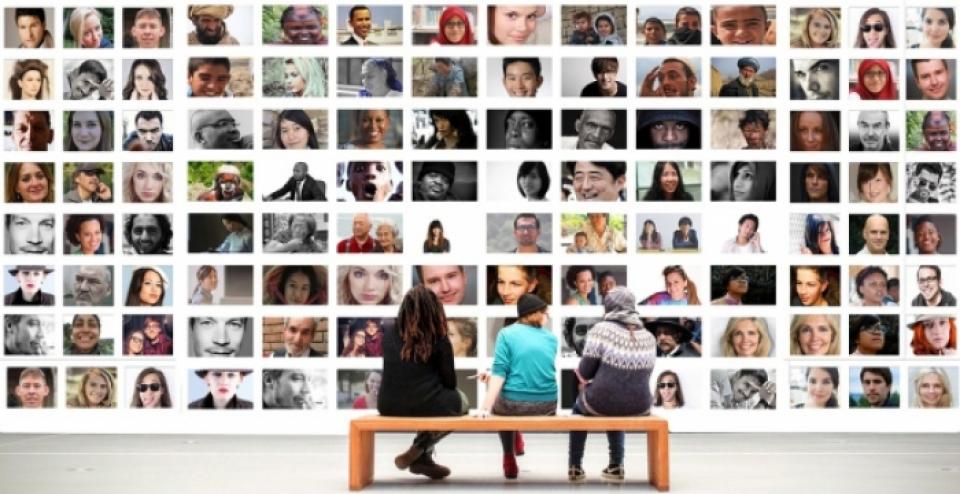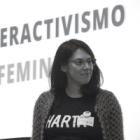
In the last five years, reports on connectivity around the world show remarkable progress: those of the International Telecommunication Union (ITU) recorded a year-on-year increase of 9% and 20%, respectively, in fixed and mobile broadband subscriptions, while this growth is even stronger in the global South.
However, as levels of access to the internet increase, there is growing concern about the persistent digital divide. Although 51% of the population has internet access, the big question seems to be: how will the "other half" connect up? Here we should especially take into account that this other half consists of the rural population and those living in urban peripheries, the poor, and women in countries with marked gender gaps.
Although 51% of the population has internet access, the big question seems to be: how will the "other half" connect up? Here we should especially take into account that this other half consists of the rural population and those living in urban peripheries, the poor, and women in countries with marked gender gaps.
The development of internet connectivity indicators in the world is frequently accompanied by a discourse of progress, one that references business expansion, state modernisation, increased employment, access to finance, the transformation of education, and the globalisation of cultural and entertainment products. It would appear then that the internet is the doorway to the conditions necessary for development, and those passing through it need to include the "offline" population that still lives in a disconnected world, switched off and alienated from these opportunities for progress.
The discourse of progress and access to the internet
In this article I would like to offer a critical reflection on the discourse of progress or linear development, after participating in the first conference on Decolonising the Internet held in Cape Town, later followed by a streaming of the 11th edition of the Latin American and Caribbean Regional Preparatory Meeting for the Internet Governance Forum (LACIGF11) that took place in Buenos Aires. The focal point of my reflection is how a framework of decolonial thinking would allow us to reconsider the global governance of the internet, this being a subject that has grown over time and does not refer only to technical issues, but to deeply political aspects. When discussing issues such as regulations that affect the internet, net neutrality and the use of data and content, which internet is being discussed? The internet of whom and for whom? And what sort of internet is being promoted for the 49% who are still unconnected?
When discussing issues such as regulations that affect the internet, net neutrality and the use of data and content, which internet is being discussed? The internet of whom and for whom? And what sort of internet is being promoted for the 49% who are still unconnected?
The digital divide, as well as any other development gap, does not occur in a linear path of progress, where there is a final goal to be achieved and only the transition of the least developed nations needs to be promoted. In contrast, the incorporation of new territories and populations within the internet is like the incorporation into capitalism: it takes place within a colonial scheme of dependency and subordination. And as Renata Avila noted in a recent essay, "the global populations that are still disconnected represent the disputed territory of technological empires."
Thus, this "other half" is going to enter an internet that is increasingly concentrated in a few very influential monopolies. The new generations of users, who access the internet from their mobile phones, are discovering a set of online services rather than an open, free and distributed network. They are late arrivals at debates on regulations and internet policies, because the rules have been shaped taking into account the interests of corporations and core countries (copyright, cybercrime, intermediary responsibilities, data protection, trade in services, etc.).
The new generations of users, who access the internet from their mobile phones, are discovering a set of online services rather than an open, free and distributed network.
Human rights, corporate power and real democracy on the web
The discussion on internet governance in forums such as the IGF has to go beyond the concern for differences in access and use of technologies, and enter into the conflicts between human rights and corporate power. Otherwise, a colonial internet agenda is imposed on these new online populations. This is an agenda that requires the rapid connection of that part of the population that still does not have access to the internet. However, at the same time it demands the freedom to do business based on the extraction of data at the global level, while imposing barriers on the local use of knowledge and technology in the form of the protection of intellectual property.
Yet even projects that represent a real alternative to the commercialised internet cannot escape the reproduction of models of power and domination. An example of this is Wikipedia, or the free software communities, where we find that knowledge is constructed from within privileged groups, by white males, with access to technology and technical training and based in core countries. And this occurs even when 75% of the online population resides in the global South and at least half are women.
An example of this is Wikipedia, or the free software communities, where we find that knowledge is constructed from within privileged groups, by white males, with access to technology and technical training and based in core countries. And this occurs even when 75% of the online population resides in the global South and at least half are women.
The "Decolonising the Internet" conference focused precisely on those responsible and how the knowledge that comes online is constructed, postulating that there is a more complex gap, which is not only access to knowledge: it is a gap in knowledge itself.
To consider all of this using an example, let's take the issue of "fake news" and misinformation (a topical issue that was discussed by a panel at LACIGF11). How will platforms such as Facebook determine supposedly "reliable" knowledge, which also represents the basis for "detecting" fake news? This task is being entrusted to a combination of a network of news checkers and machine-learning tools. However, it is highly probable that the knowledge of marginalised communities that are not online remains beyond the reach and criteria of this apparatus of truth, or that even when such communities are online, they are systematically invisibilised or affected by systematic biases.
The knowledge of marginalised communities that are not online remains beyond the reach and criteria of this apparatus of truth, or that even when such communities are online, they are systematically invisibilised or affected by systematic biases.
How then do we question the asymmetries of power and digital colonialism, and in terms of the framework of internet governance? The internet operates in a globalised and interconnected world, with its map shaped by this reality. However, it also represents an internationalist project, and one of humanity’s public goods. Moreover, today it operates under capitalist, colonial and patriarchal rules that express the power of a handful of companies, along with an infrastructure that is practically based in just one country, but transfers capital throughout the world.
The internet operates in a globalised and interconnected world, with its map shaped by this reality. However, it also represents an internationalist project, and one of humanity’s public goods.
The answer is not a retreat to the local level, or state sovereignty or individual autonomy. Nor is it enough to demand adaptations and a localised approach to global corporations, because Facebook, Google and other corporations do in fact have local, national and regional approaches, which they find very useful to expand their markets.
What we need is a real democracy on the web, which allows the already connected population and those who join them to decide how they will connect and participate under equal conditions in the defining of rules for an inevitably interconnected world, but not inevitably unfair and unequal.
- 14799 views







Add new comment